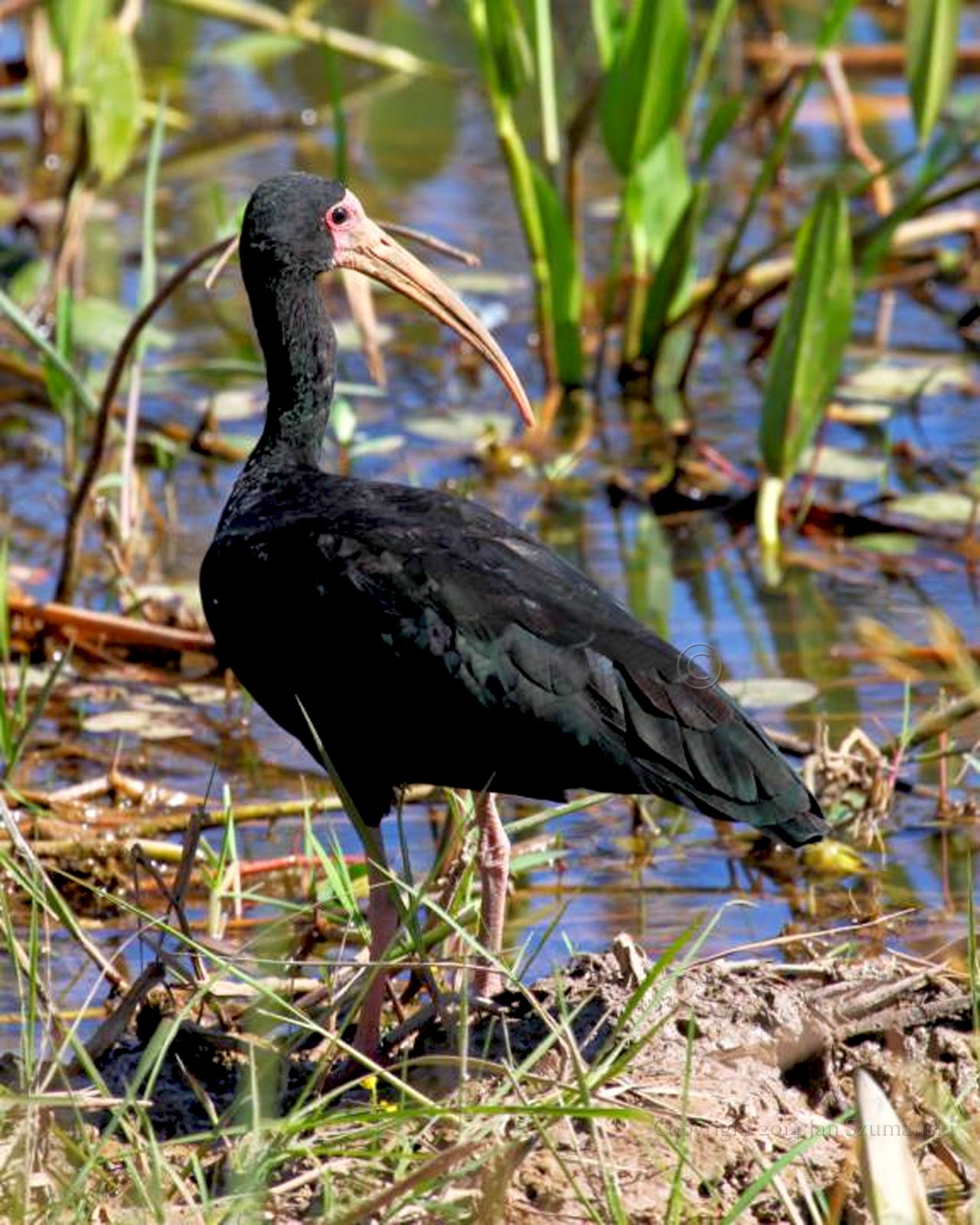Bare-faced Ibis - Ibis Ostrosterny
Brazil, Pantanal, 2013
Description
The Bare-faced Ibis is a small, dull ibis of open marshes throughout much of South America. It is smaller, and shorter-legged, than any other Neotropical ibis. This Ibis is darkish red overall. It has bare red skin on the face and a long, pink to yellow bill. In flight its pink legs barely extend beyond its tail, a feature which distinguishes it from flying White-faced Ibis whose longer legs extend noticeably beyond the tail. Flight strong, with steady fast wing beats; glides less than White-faced. Often seen flying overhead, moving between its feeding and roosting sites.
Habitat
It occurs from northern Colombia east through the Venezuelan llanos and from eastern Brazil west to Bolivia and south to central Argentina. It is found in marshes and open areas around ponds and lakes.
Sound
Sound of Bare-faced Ibis
Diet
Bare-faced ibises are often found foraging in moist soil as well as along the edge of standing water. They rarely step in to the water. The diet consists of worms, small invertebrates and insects. Follows cattle to forage the disturbed prey. Usually found solitary or in small groups.
Reproduction
Breeds solitary or in loose colonies, usually in smaller groups or in mixed larger groups. Builds nest low above ground, out of sticks and twigs. Clutch size is 2-5 eggs which are incubated for about 3 weeks. Young fledge after about 4 weeks more. This species is highly sensitive to predation with colonies loosing up to 80% of the chicks in Venezuela.
Photos by others








No comments:
Post a Comment